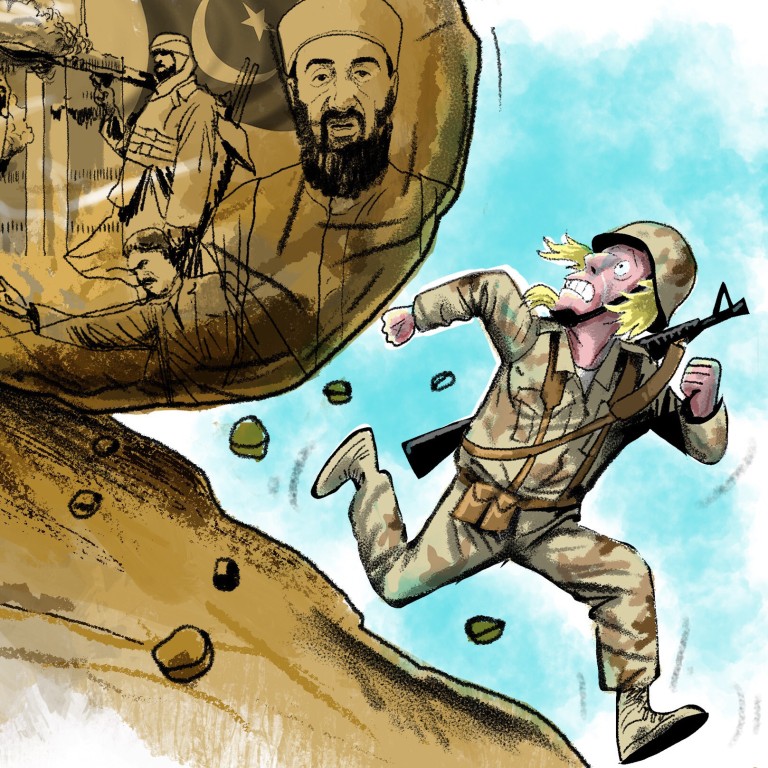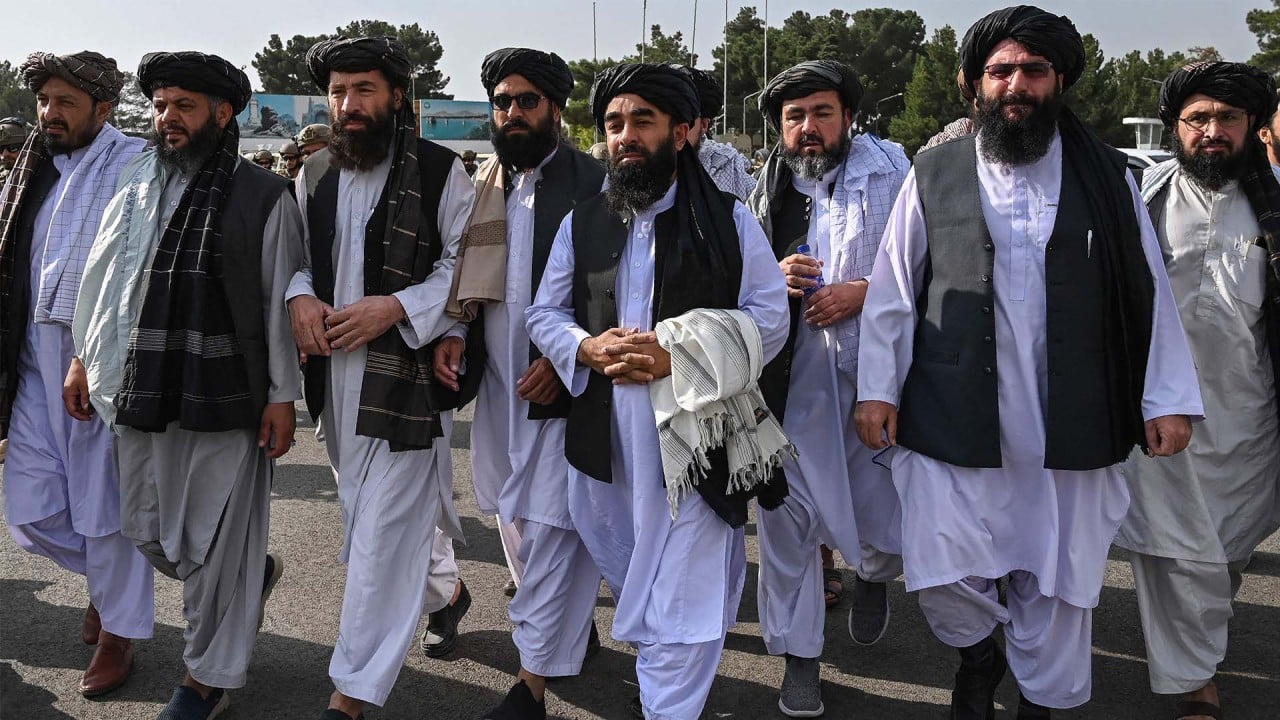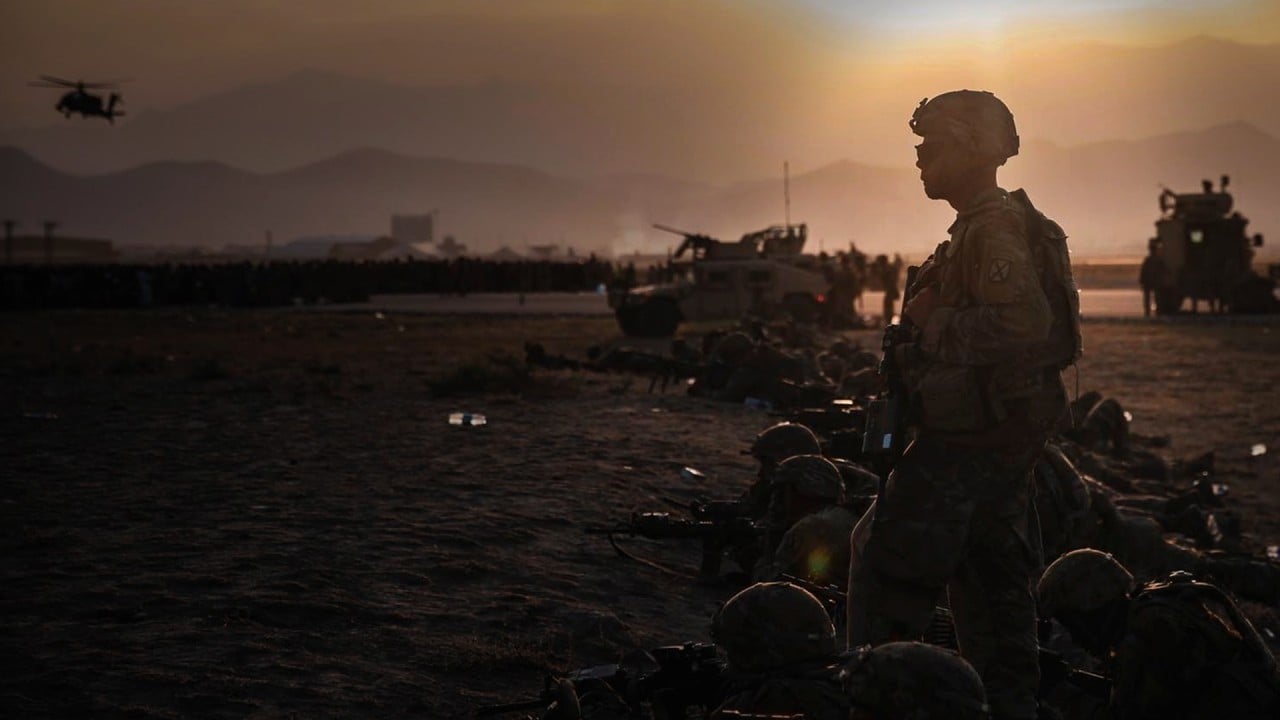
Post Afghanistan exit, US must confront the bitter truths of its global ‘war on terror’
- The messy withdrawal, capped by a bomb attack at Kabul airport that killed dozens, is a sorry end to 20 years of America’s war in Afghanistan
- A commission should be set up to bring to light the reasons for this debacle, as happened following the 9/11 attacks
In Greek mythology, Sisyphus the king of Ephyra is condemned by the gods to painstakingly push a huge boulder up a hill only to have it roll down once he reached the top. To add to his misfortune, he was doomed to this laborious task for eternity.
Al-Qaeda was scattered, bin Laden went into hiding and it was presumed by the US – wrongly – that the terrorist threat posed by the Taliban had ended. In one of the biggest policy blunders made by the Bush-led White House at the time, the Pentagon was directed to shift its operations from Afghanistan to Iraq.
In the past two decades, the US has expended considerable blood and treasure in the Afghan war. This includes US$2 trillion as a direct cost to American taxpayers (including the Iraq war), and the death toll of 2,461 US military personnel. The overall death toll is more than 170,000, including Afghans and others.
The degree to which the Taliban victory in Afghanistan will enable al-Qaeda, Isis, and the other jihadi terrorist groups that share their core ideology, will become evident in the months ahead.
Domestic politics, not Afghanistan exit, is hastening US decline
After the Kabul exit, there is a case for Biden to institute a similar investigation about the global “war on terror” and the reasons US credibility is dented and diminished among both allies and adversaries.
Part of the reason for this debacle is that the US has chosen to create its own strategic bubble since the Soviet invasion of Afghanistan in 1979. A Faustian bargain was struck by the White House on Ronald Reagan’s watch, to foster and support the Afghan mujahideen (Kalashnikov in one hand and the Koran in the other) against the USSR. In this furtive plan, Pakistan was accorded a pivotal role.
Peace or more terrorism: how Afghan Taliban will shape Pakistan’s future
This dark secret, that the deep state in Pakistan could not be exposed or penalised, was known to the professionals in US foreign policy, but a make-believe simulacrum was created so as not to affect what was believed to be larger US strategic interests.
Biden, as a US senator of long standing and later vice-president, had a ringside view of this perfidy and would have been aware of the irony that the US targeted Iraq for a fabricated jihadi terror linkage when the real culprit was Pakistan.
The US termed the primary theatre in the global “war on terror” as Af-Pak. It ought to have been Pak-Af.
The war in Afghanistan was congenitally flawed and hopefully the 20th anniversary will be an opportune moment for the US to pierce the simulacrum and confront some inescapable truths.
Commodore C. Uday Bhaskar is director of the Society for Policy Studies (SPS), an independent think tank based in New Delhi



